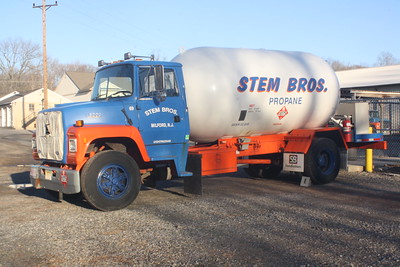
The average propane price in New Hampshire is currently $3.66 per gallon as of March 2024. This price may vary based on the provider and the amount of propane purchased. It’s worth noting that propane prices can fluctuate due to several factors, including seasonality, demand, and changes in crude oil prices. For the most accurate and up-to-date pricing, it’s best to contact local propane suppliers directly. They can provide specific rates and any available discounts or promotions that may apply to your situation.
Overview of the Current Market in New Hampshire (in the Past Months)
In the state of Maine, the price is a bit lower.
Why Propane Prices Matter
When it gets cold, we turn up the heat to keep our homes warm and cozy. For many people in New Hampshire, this warmth comes from propane. Propane is like the fuel for your car, but instead, it heats your home, cooks your food, and may even power your fridge. Now, just like gas for your car, the price of propane can go up and down. This can make a big difference in how much money you need to set aside each month, especially when it’s really cold and you’re using more propane to stay warm.
The Impact on Your Wallet
Think about it: if the price of propane goes up, and you’re using it to heat your house, cook, and keep your food cold, your bills will go up too. This is really important in the winter months when you need more heat. If you have a tight budget, a sudden jump in propane price can be a big deal. You might have to spend more on propane and less on other things.
Why Do Propane Prices Change?
You might wonder why the price of propane doesn’t stay the same. Well, a few things can make it go up or down:
- Demand: In the winter, everyone wants to keep warm, so more people are buying propane. When lots of people want something that there isn’t a lot of, the price can go up.
- Weather: If it’s a really cold winter, people use more propane, and this can make the price go up too. If the winter is mild, maybe not so much.
- Oil Prices: Propane prices can also change when the prices of crude oil (the raw material used to make a lot of things, including propane) go up or down. Think of it like a domino effect: if the cost to make propane goes up, the price you pay goes up too.
So, keeping an eye on propane prices can help you budget better and avoid surprises when it’s time to fill up your propane tank. It’s all about making sure you can keep your home warm and comfortable without breaking the bank.
How to Snag the Best Deals on Propane
Shop Around for Prices
- Start by checking out a few different propane suppliers in your area. Think of it like shopping for the best deal on sneakers; you wouldn’t buy the first pair you see without checking a couple of other stores first, right? It’s the same with propane. Prices can vary from one supplier to another, so a little legwork can save you some cash.
Ask About Special Deals
- When you talk to propane suppliers, don’t be shy about asking if they have any deals or special offers going on. Sometimes, they have discounts you can snag if you’re a new customer or if you’re willing to sign up for automatic deliveries. It’s a bit like asking for extra ketchup at a fast-food joint; if you don’t ask, you won’t get it.
Look Into Budget Plans
- Some propane companies offer budget plans that let you spread your propane payments over several months. This can make your bills more predictable and easier to handle, kind of like paying for a Netflix subscription instead of buying a whole DVD box set at once.
Buy in Bulk or Join a Group
- Buying a lot of propane at once, or joining up with other folks to buy propane as a group, can often get you a lower price. It’s like buying a big pack of toilet paper at the warehouse club instead of just a single roll at the convenience store. The more you buy, the less you pay per gallon.
By following these tips, you’ll be in a better position to find the best propane deals, helping your household budget go further. Just remember, the key is to ask questions, compare options, and look out for opportunities to save.
Is Propane Cheaper than Oil in New Hampshire?
Whether propane or oil is cheaper in New Hampshire depends on various factors, such as supply and demand, local market conditions, and the efficiency of the heating system being used.
In general, propane prices in this state tend to be more volatile than oil prices, as propane is a commodity that is traded on the open market and subject to price fluctuations. Propane prices can be affected by factors such as supply and demand, crude oil prices, transportation costs, and government regulations.
On the other hand, heating oil is a more stable commodity and tends to be less volatile than propane. Heating oil prices are influenced by factors such as global oil production and political events, but they are also influenced by regional supply and demand conditions.
When it comes to comparing the cost of propane and oil for home heating, the efficiency of the heating system being used is also an important consideration. In general, propane furnaces tend to be more efficient than oil furnaces, meaning they can provide more heat with less fuel. However, the cost of a propane furnace is often higher than an oil furnace, which can impact the overall cost of heating a home.
Whether propane or oil is cheaper in New Hampshire will depend on a variety of factors, including local market conditions, the efficiency of the heating system being used, and fluctuations in supply and demand. It is important for consumers to compare prices and consider all of these factors when making decisions about their home heating options.
Propane Providers in NH
Here are some propane providers in New Hampshire, along with their contact information:
- AmeriGas Propane
- Website: AmeriGas Propane
- Phone: 1-800-AMERIGAS (1-800-263-7442)
- Note: AmeriGas has multiple locations in New Hampshire. It’s best to visit their website or contact them directly to find the nearest location and address.
- Eastern Propane & Oil
- Address: Not specified; they have various locations.
- Phone: 1-800-523-5237
- Website: Eastern Propane & Oil
- Note: Eastern Propane & Oil serves multiple states, including New Hampshire. Please contact them or visit their website to find the closest service location.
- Irving Energy
- Address and Phone: Specific locations and contact information are not provided in the initial search results.
- Website: Irving Energy
- Note: Irving Energy provides propane services across New Hampshire. Visit their website or contact them directly for specific location information and to inquire about services.
For the most accurate and up-to-date information, including addresses and services offered in your specific area, it’s best to visit the providers’ websites or contact them directly. These companies often have multiple locations and offer a range of services tailored to local needs, so they can give you the most relevant information.
To Make a Conclusion
Wrapping things up, figuring out the current price of propane in New Hampshire isn’t just about knowing what you’ll need to pay next time you fill up your tank. It’s more about being smart with your household budget, especially when the weather gets chilly and you’re using more of the stuff to keep your place cozy. Right now, propane is going for about $3.66 a gallon around these parts, as of March 2024.
But remember, prices can swing up or down depending on a bunch of things like how cold it is, how much propane folks are using, and what’s happening with oil prices around the world.
To make sure you’re getting the best bang for your buck, it pays to shop around, ask about deals, and maybe even team up with your neighbors to buy in bulk. Stay warm and take it easy on your wallet!

Mike is an experienced propane technician with over 15 years of professional experience in the field. He has dedicated his career to helping customers with their propane needs, from installation to maintenance and repair. Together with Jeremy, he co-founded this website to provide useful information and guidance to customers seeking reliable propane services.



